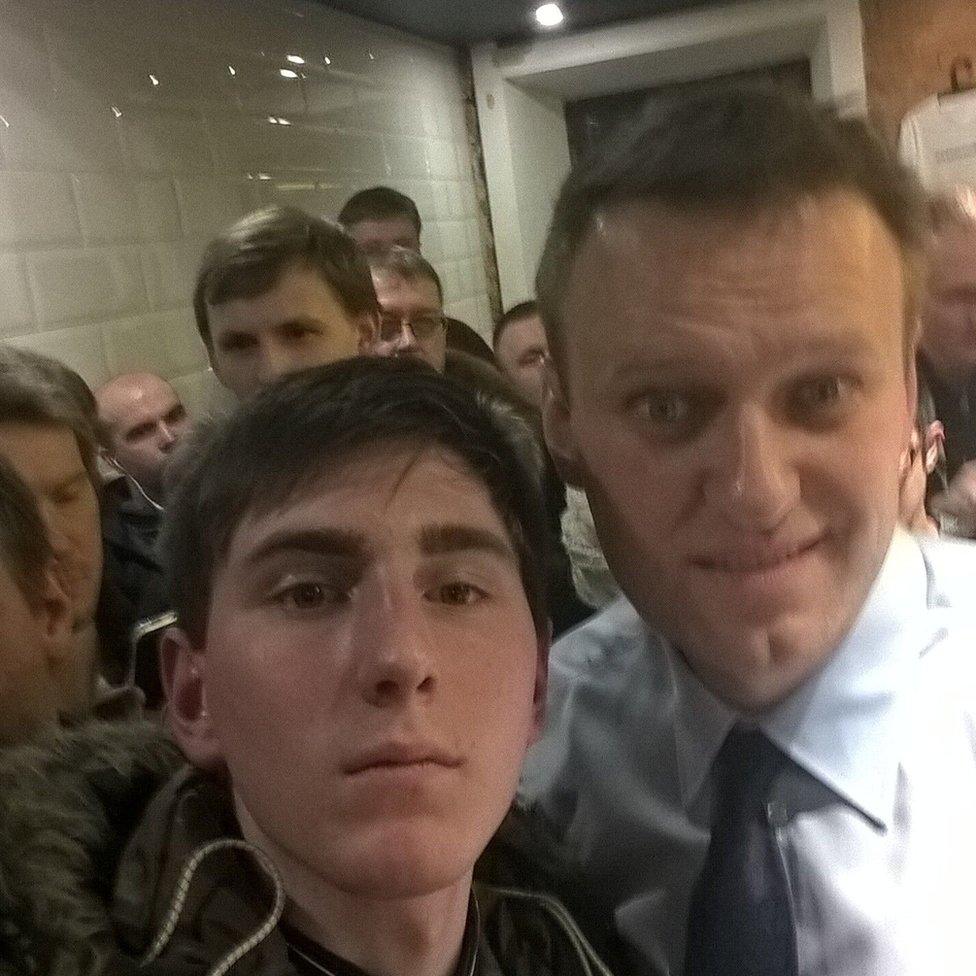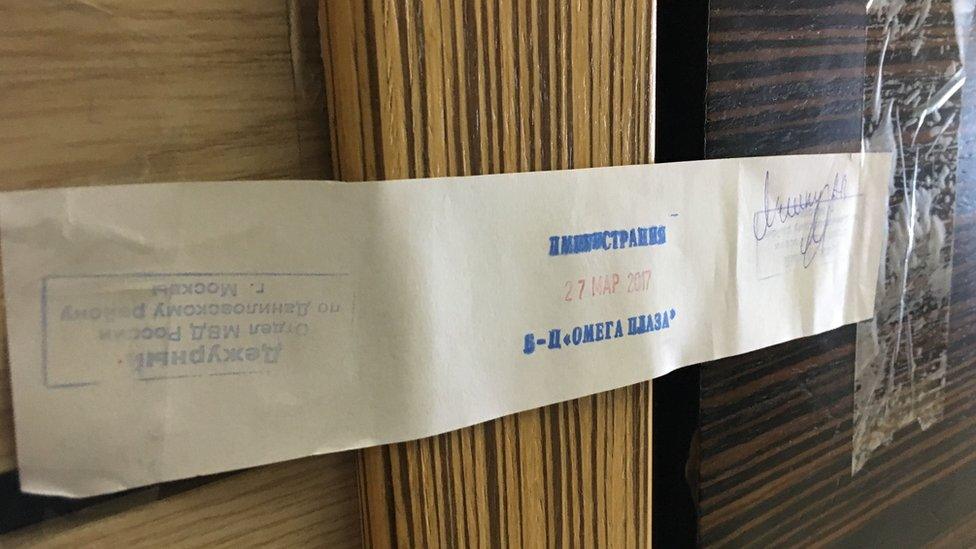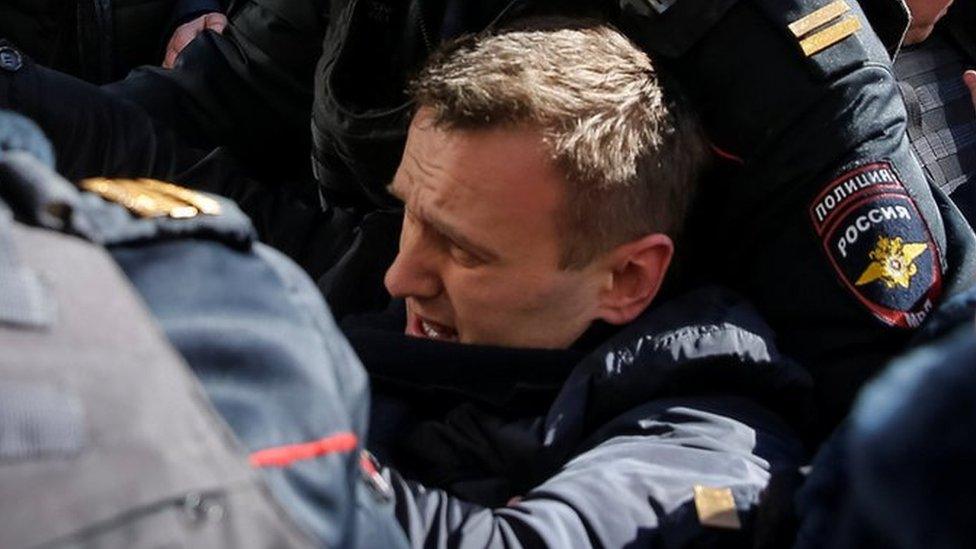How Russia's YouTube generation is getting its news
- Published
Presenter Lyubov Sobol (right) hosts her anti-corruption reports on YouTube
"Good morning, this is Lyubov Sobol!"
It's 08:00 in the morning and the cheery 29-year-old has just begun her daily newscast on YouTube. Today's instalment is a one-hour live chat about mass arrests, high-level corruption and the biggest protests to sweep Russia in years.
They are all topics ignored by state television.
"I want to share my opinion of what's happening in the country, to discuss interesting news," the presenter explains.
She works for the Anti-Corruption Foundation, or FBK, led by the opposition activist Alexei Navalny who organised last week's protests. The large number of students and even schoolchildren who turned out suggests his alternative message is increasingly appealing to young Russians.
It has sparked discussion of a new, YouTube generation - those who have grown-up in Vladimir Putin's Russia, but beyond the reach of his tightly controlled press.
'We want answers'
"It's easier for young people to have a critical view, because... they're not so tired and disillusioned by our state," is how Lyubov explains it. "They want justice. They see that things are not normal here."
That's why Pavel Leshev joined his first ever protest on Sunday, in St Petersburg.
The 17-year-old had watched the FBK's latest slick film online, presenting corruption allegations against Russia's Prime Minister Dmitry Medvedev.
"It's awful that Russian police and prosecutors don't investigate," Pavel explains by phone from his hometown. "I think all of us want to get answers," he says, adding that corruption and economic problems are what worry him and his school friends most.

Pavel is a big fan of Alexei Navalny - and grabbed a selfie when he met him
You couldn't miss the young protesters here in Moscow. Roman Shingarkin shinned up a lamp-post to avoid the crush, and images of the teenager were widely shared on social media. Roman was eventually arrested and says more than half the detainees in his police van were under 18, perhaps because they were the easiest to catch.
"I came out to protest at corruption in Russia," Roman says simply, confirming that he too had seen the FBK film on the prime minister.
"Young people are constantly on the internet and all the information is there. TV tries to hide it," he says.

You may also like:

Whilst that same state television portrays Mr Putin as unassailable - and has censored coverage of the protests - both teenagers feel it's time for the president to go.
Roman thinks that at 64, Mr Putin is "not young" and has "been in power too long".
Pavel is a big fan of Alexei Navalny and plans to vote for him to become president next year, if the activist is allowed to run. But he fears that Mr Putin, first elected when Pavel was born, will remain in power "for another six years, and then another six."
For many older Russians who lived through the turmoil of the 1990s, President Putin has offered a welcome sense of relative stability. But that's not appealing to many teenagers.
"Young people are fed up with the existing state of things - with no talk of any future scenario, only talk about the past," political scientist Ekaterina Schulmann argues.
"Stability has no charm for them and they are more or less immune to state propaganda."
That's where Mr Navalny's young team come in.
On Thursday Lyubov introduced a co-host for her show who is a social media superstar. His MDK page on Russia's equivalent of Facebook has over 7.7 million subscribers.

Russian security forces sealed the Anti-Corruption Foundation offices for several days
The authorities here are slowly waking up to the challenge.
As Mr Navalny's team streamed Sunday's demonstrations live, their office was raided by police. Fifteen people were arrested. The FBK premises were sealed and remained out of bounds for almost a week.
But the reason so many Russians joined the protests remains.
"If it goes on like this, then people will take to the streets again. Against corruption, and against those in power," 17-year-old Roman insists.
"I personally will come out in protest."
- Published27 March 2017
